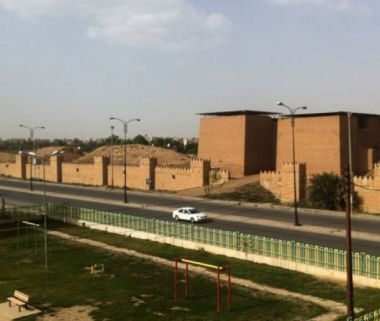ISIS demolishes 2,000-year-old 'Gate of God' in ancient city of Nineveh in Iraq

The Islamic State (ISIS) has destroyed another 2,000-year-old archaeological treasure in the ancient city of Nineveh, according to United Press International (UPI).
The Mashqi Gate, also known as "Gate of God" in Nineveh near Mosul, was reportedly demolished by the terror group with the use of military equipment.
The British Institute for the Study of Iraq and the Baghdad Antiquities Department both confirmed the demolition of the ancient structure by the extremist group, the Independent reports.
"ISIS views tombs they destroy as sacrilegious and a return to paganism," Syrian antiquities chief Abdul Maamoun Abdulkarim said, as quoted by the ARA News.
Unconfirmed reports also mentioned that the group was dismantling the walls of Nineveh and selling separate stone blocks.
Nineveh was once the largest city in the world dating back to the 7th century B.C. during the reign of King Sennacherib, WND reports.
According to biblical records, the ancient city was synonymous with "wickedness."
The Mashqi Gate was also mentioned in the Bible. It was said to have been excavated in the 1960s and subsequently restored. It was one of the many grand gates that protected the Assyrian city, history books say.
The destruction of the gate is the latest in ISIS' campaign of cultural vandalism.
Earlier, the extremist group also destroyed other archaeological sites in Iraq and Syria, using explosives and bulldozers, while salvaging for sale on the black market items more easily transported.
Among the sites demolished were those in the Assyrian city of Nimrud, including the winged bull, and those in the Mosul National Museum. The vandalism of Mosul's museum done by the militants was reportedly shown in a propaganda footage released in February 2015.
In Mosul's library, the extremist group burned more than 100,000 old books and manuscripts that were reported to be among UNESCO's historical rarities, reports WND.
Although only recently been forced out of Palmyra, Syria, the extremist group also left in ruins the iconic Temple of Bel, the Arch of Triumph and the Temple Baalshamin in August 2015.











